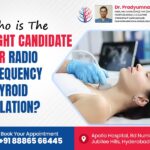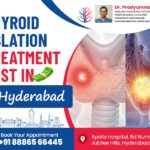Treatment of varicose veins usually lasts for a long time, but they may recur sometimes even after surgery. Most patients who undergo varicose vein surgery experience excellent results, but varicose veins might reoccur for a variety of reasons.
The majority of the time, varicose veins permanently disappear following treatment. With minimally invasive surgery and other laser treatments, these swollen veins along the legs and feet can be removed safely without any discomfort.
Although sometimes varicose veins recur despite therapy. However, you shouldn’t let that prevent you from getting treatment for varicose veins. If it is understood why varicose veins occur again, they can be prevented from reemerging with the most suitable treatment option.
Why Varicose Veins Recur
The blood is transported from the heart to other body parts through a system of arteries and veins. The arteries are responsible for delivering oxygenated blood to all the tissues, and the veins are responsible for transporting back the blood to the heart. This mechanism works as the small valves found inside the veins force the blood upward towards your heart.
However, there are many factors like increasing age, obesity or extra weight, or a sedentary lifestyle that affect the functions of these valves by making them weak. It eventually results in venous reflux. Venous reflux is referred to as too much blood pooling in the veins, causing the walls of the affected veins to stretch. A wide range of effective treatment options is available to treat these varicose veins.
Most of the time, the condition responds favourably to treatment. But if the condition recurs, it might be because of one of the following reasons:
Missed treating all the affected veins
The condition of vein reflux may arise in many veins. Often, after initial surgery, these connections become apparent. Even when the affected vein is closed off by treatment, blood can still flow through other veins which may develop this condition when left untreated. When this happens, an ultrasound can find all the affected veins in your legs and they can all be treated at the same time.
Genes
Some people are more prone to varicose veins condition due to their genes. Even after successful treatment, varicose veins might reappear since it is a chronic or progressive medical condition. In case you are genetically susceptible to varicose veins, your surgeon will suggest ways to prevent them from getting worse or recurring. Weight loss, regular exercise, and wearing compression stockings can reduce the development of new varicose veins and ease your symptoms.
Emerging of New Risk Factors
Even if the initial varicose vein treatment was successful, they may develop again due to certain risk factors that develop years after treatment. If you regain weight or become pregnant after treatment, the risk of recurrence of varicose veins increases. A vascular specialist can assist you to prevent the odds of varicose veins from occurring again.
Growth of new blood vessels or recanalization
When you are injured or have surgery, your body makes new cells as a process of self-healing. In some cases, this process of healing can reverse the results of surgery. The recurrence of varicose veins can sometimes be caused by neo-vascularization, a condition in which new blood vessels grow between the deep veins and the traces of the previous varicose veins.
Varicose veins that have been treated might also reopen. It means the veins that were closed off have reopened (recanalization) and have begun to flow blood again. Certain treatments are less likely to result in neovascularization and a vascular surgeon can help you.
Inefficient treatment
The surgical treatment for varicose veins involves cutting off blood flow to the affected vein or veins and redirecting it to the nearby vein. Once blood flow is stopped to the affected vein, it shrinks and fades away. The entire vein might be removed or “stripped” in some procedures.
In some cases, venous reflux cannot be solved with one treatment. Reflux can occur in several veins. A new varicose vein may develop further if all malfunctioning veins are not treated.
Planning and preparation are essential for successful varicose vein treatment. If you aren’t diagnosed properly or if the affected veins aren’t treated completely, you could develop new varicose veins even after treatment.
It is common for varicose veins to recur and 1 in 5 (20%) patients experience this condition even after surgery. Treatments like injection and sclerotherapy have a higher recurrence rate.
To know about varicose veins and their treatment, consult Dr. Pradyumna Reddy, one of the leading Interventional Radiologists in Hyderabad, who can treat varicose veins with advanced radiology methods. He treated numerous patients with varicose veins that recur after initial treatment. Call +91 88865 66445 to book an appointment with Dr Pradyumna Reddy.






